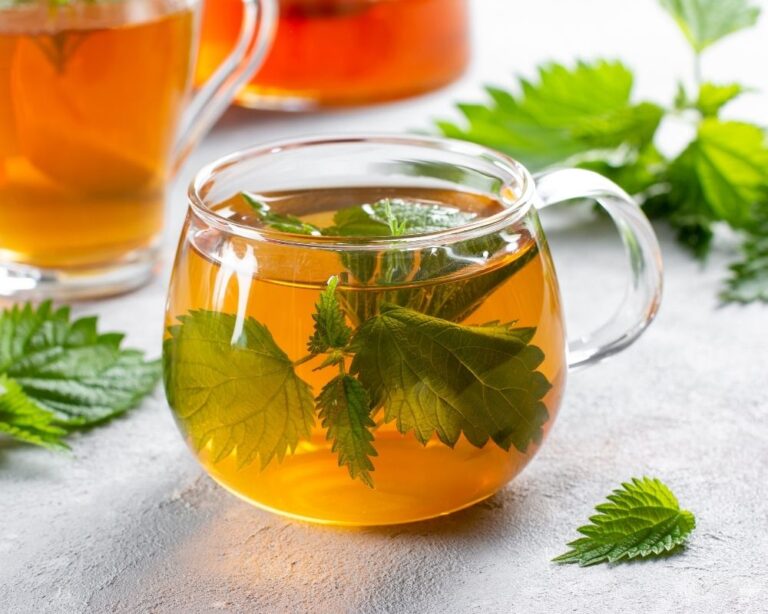You may believe olive oil is just another kitchen staple, but its impact on your potassium levels—and overall health—could surprise you. While potassium is essential for your body, too much can strain your kidneys, particularly when they’re already struggling. Luckily, olive oil packs a punch with heart-healthy fats while keeping potassium levels low, making it a smart choice for kidney-conscious diets. Questioning how it stacks up against other oils or how to use it best? Stick around—this could change your approach to cooking and eating.
Understanding Olive Oil and Its Nutritional Profile
Though olive oil isn’t a major source of potassium, it still plays a key role in diets where potassium levels need careful attention—like for those managing kidney issues.
You’ll find just 0.1mg of potassium per tablespoon, making it a safe choice while you’re watching your intake.
But its real strength lies in its nutritional profile: packed with monounsaturated fats, it supports heart health by helping lower bad cholesterol levels.
These healthy fats also keep your energy up without spiking potassium. Plus, olive oil’s antioxidants add extra benefits, like reducing inflammation.
Since it’s free from phosphorus, sodium, and carbs, it fits well into restrictive diets.
While it won’t boost potassium, its heart-friendly qualities make it a smart addition to your meals.
Just keep in mind—moderation matters, as it’s calorie-dense.
The Role of Potassium in Kidney Health
Because your kidneys work hard to balance potassium levels, comprehending how this mineral affects them is key—especially should you be managing chronic kidney disease.
Potassium helps regulate fluid balance and muscle function, but whenever kidneys struggle, excess potassium can build up, leading to hyper. This. This condition can cause serious heart issues, so monitoring your intake matters.
Should you have kidney disease, your doctor may adjust your dietary plans to limit high-potassium foods like bananas or potatoes.
Regular blood tests help track levels, ensuring they stay safe. Staying hydrated and following personalized meal guidelines supports kidney health.
Small changes, like swapping certain veggies for lower-potassium options, make a big difference. Always consult your healthcare team to tailor choices to your needs.
Olive Oil’s Low Potassium Content: A Kidney-Friendly Choice
In case you’re keeping an eye on your potassium intake—especially for kidney health—olive oil is a safe and smart choice. Its low potassium content (less than 1 mg per tablespoon) makes it ideal for a kidney-friendly diet, particularly when you have chronic kidney disease.
Unlike other oils, olive oil won’t spike your potassium levels, so you can enjoy its rich flavor without worry. Plus, it’s packed with healthy fats, supporting overall wellness while keeping your diet balanced.
Regular consumption lets you cook, drizzle, or dress meals without compromising your health goals. Whether you’re sautéing veggies or making a salad, olive oil’s versatility fits seamlessly into your routine.
It’s a simple swap that keeps your meals tasty and your kidneys happy.
Monounsaturated Fats and Their Benefits for CKD Patients
You’ll find monounsaturated fats in olive oil can boost your heart health by lowering bad cholesterol, which is essential for CKD patients.
These fats also help manage blood sugar levels, reducing diabetes risks that often come with kidney disease.
Plus, their anti-inflammatory properties might ease kidney strain and support overall well-being.
Heart Health Benefits
While managing chronic kidney disease (CKD) can feel overwhelming, adding extra-virgin olive oil to your diet might give your heart a much-needed boost.
Packed with monounsaturated fats, it helps lower bad cholesterol (LDL) and raise good cholesterol (HDL), which is essential for heart health. Since CKD often raises cardiovascular risks, this simple swap can make a big difference.
The anti-inflammatory properties in extra-virgin olive oil also reduce inflammation, a common issue for CKD patients, and could lower markers like C-reactive protein.
Plus, it’s low in potassium, so you won’t have to worry about spiking your levels.
Diabetes Management Aid
Because managing diabetes with chronic kidney disease (CKD) can feel like walking a tightrope, extra-virgin olive oil could just be the balancing pole you need. Its monounsaturated fats help stabilize blood sugar and improve insulin sensitivity, making diabetes management easier. Plus, its minimal potassium levels (<1 mg per tablespoon) won’t strain your kidneys.
| Benefit for CKD & Diabetes | How Olive Oil Helps |
|---|---|
| Blood sugar control | Monounsaturated fats improve insulin response |
| Heart health support | Lowers risk of cardiovascular disease |
| Kidney-friendly | Minimal potassium, reducing strain on kidneys |
You’ll also get a heart-healthy boost, since olive oil lowers bad cholesterol and fights inflammation. Swap butter or processed oils for olive oil—your body will thank you. It’s a simple, tasty way to care for your health without extra stress.
Anti-inflammatory Properties
Chronic kidney disease often comes with persistent inflammation, but extra-virgin olive oil’s monounsaturated fats, like oleic acid, can help dial it down.
These fats, along with powerful polyphenols, fight inflammation and oxidative stress, which are common in CKD. By reducing inflammation, you could lower your risk of complications like cardiovascular diseases, a major concern for CKD patients.
Plus, olive oil’s anti-inflammatory properties can support better blood pressure control without spiking potassium levels—a win for kidney health.
Swap out unhealthy fats for extra virgin olive oil in salads or cooking to reap these benefits. Its mild flavor makes it easy to incorporate into meals, and its heart-healthy perks add extra value.
Small changes like this can make a big difference in managing CKD.
How Olive Oil Supports Heart Health in Kidney Disease
Olive oil’s rich heart-healthy fats help lower bad cholesterol, which is especially crucial for your heart should you have kidney disease.
By replacing less healthy fats, it reduces strain on your arteries, easing pressure on your heart.
This small change can make a big difference over time, keeping your heart stronger while managing kidney issues.
Rich in Heart-Healthy Fats
While managing kidney disease, you might worry about keeping your heart healthy—but extra virgin olive oil can be a simple, powerful ally. Packed with monounsaturated fats, it helps protect your cardiovascular health by balancing cholesterol levels, a key factor in preventing heart disease.
Unlike other fats, olive oil’s low potassium content (less than 1 mg per tablespoon) makes it kidney-friendly while still supporting your heart. The Mediterranean diet, rich in olive oil, is linked to better heart results, thanks to its anti-inflammatory polyphenols that fight oxidative stress.
These antioxidants are especially helpful for those who often face higher heart risks. By swapping unhealthy fats for olive oil, you’re giving your heart a boost without straining your kidneys. It’s a small change with big benefits.
Lowers LDL Cholesterol Levels
One powerful way to protect your heart while managing kidney disease is by lowering LDL cholesterol—and extra virgin olive oil can help. Packed with monounsaturated fats, it naturally helps lower LDL cholesterol levels, keeping your cardiovascular health in check.
For those with chronic kidney disease, balancing cholesterol is essential since heart risks are higher. Olive oil’s antioxidants also stop LDL from oxidizing, reducing artery plaque buildup. Plus, its low potassium content makes it a safe choice without stressing your kidneys.
Swap butter or processed fats for olive oil in cooking—it’s an easy switch with big benefits. Drizzle it on salads or use it for sautéing to boost flavor and heart health.
Small changes like these add up, giving your heart the support it needs.
Practical Ways to Incorporate Olive Oil Into a Renal Diet
Adding extra virgin olive oil to your renal diet is a simple way to improve flavor without worrying about potassium. Since it’s low in potassium and packed with heart-healthy fats, it’s a smart choice for kidney-friendly meals. Use it as a dressing for salads, drizzle over steamed veggies, or swap it for butter in cooking to keep saturated fats in check. Just keep in mind—moderation is key to balancing healthy fats without overdoing calories.
| Use Case | Benefit | Serving Tip |
|---|---|---|
| Salad dressing | Adds flavor, no added potassium | 1 tbsp per serving |
| Cooking substitute | Cuts saturated fats | Replace butter 1:1 |
| Grain topping | Increases calorie intake safely | Drizzle lightly |
| Veggie drizzle | Improves taste, kidney-friendly | ½ tbsp per cup |
Stick to about 1.5 tablespoons daily to stay on track.
Comparing Olive Oil to Other Cooking Oils for Kidney Health
While managing kidney health, selecting the right cooking oil counts more than you might realize. Olive oil stands out for renal patients because it’s low in potassium and rich in monounsaturated fats, which support heart health without straining your kidneys.
Here’s how it compares to other cooking oils:
- Olive oil has just 0.1mg of potassium per tablespoon, making it kidney-friendly.
- Canola and peanut oil contain more potassium and omega-6 fats, which may not be ideal.
- Corn and soybean oil are higher in polyunsaturated fats, which can affect health differently.
- Palm oil might’ve more sodium and phosphorus, which aren’t great for kidney function.
- Flaxseed oil has a low smoke point, so it’s not as versatile for cooking.
Choosing olive oil helps keep your meals safe and nutritious for kidney health.
Potential Risks and Moderation in Olive Oil Consumption
Even though olive oil is a healthy choice for kidney health, it’s still possible to have too much of a good thing. While it’s low in potassium—just 0.1 mg per tablespoon—overdoing olive oil consumption can spike your calorie intake, leading to weight gain or higher cholesterol. Moderation is key, especially when someone has chronic kidney disease (CKD). Stick to about 1.5 tablespoons daily to balance fats without overloading your diet. Always check with a healthcare professional to tailor portions to your needs.
| Concern | Risk | Solution |
|---|---|---|
| High calories | Weight gain | Measure servings |
| Excess fat intake | Cholesterol rise | Limit to 1.5 tbsp/day |
| Unmonitored portions | Diet imbalance | Consult a professional |
Stay mindful—small tweaks keep your health on track.
Expert Recommendations for Using Olive Oil in Kidney Care
Olive oil can be a trusted ally in kidney care, especially at the time you’re watching potassium levels. Its low potassium content and heart-healthy monounsaturated fats make it a smart choice for managing kidney disease.
Here’s how to use it wisely:
- Opt for extra virgin olive oil—it’s the least processed and richest in benefits.
- Stick to 1.5 tablespoons daily to avoid excess calories while reaping heart health perks.
- Use it for cooking or drizzling—it’s versatile and adds flavor without straining dietary restrictions.
- Pair it with kidney-friendly foods like veggies or lean proteins for balanced meals.
- Check with your healthcare professional to tailor it to your specific needs.





